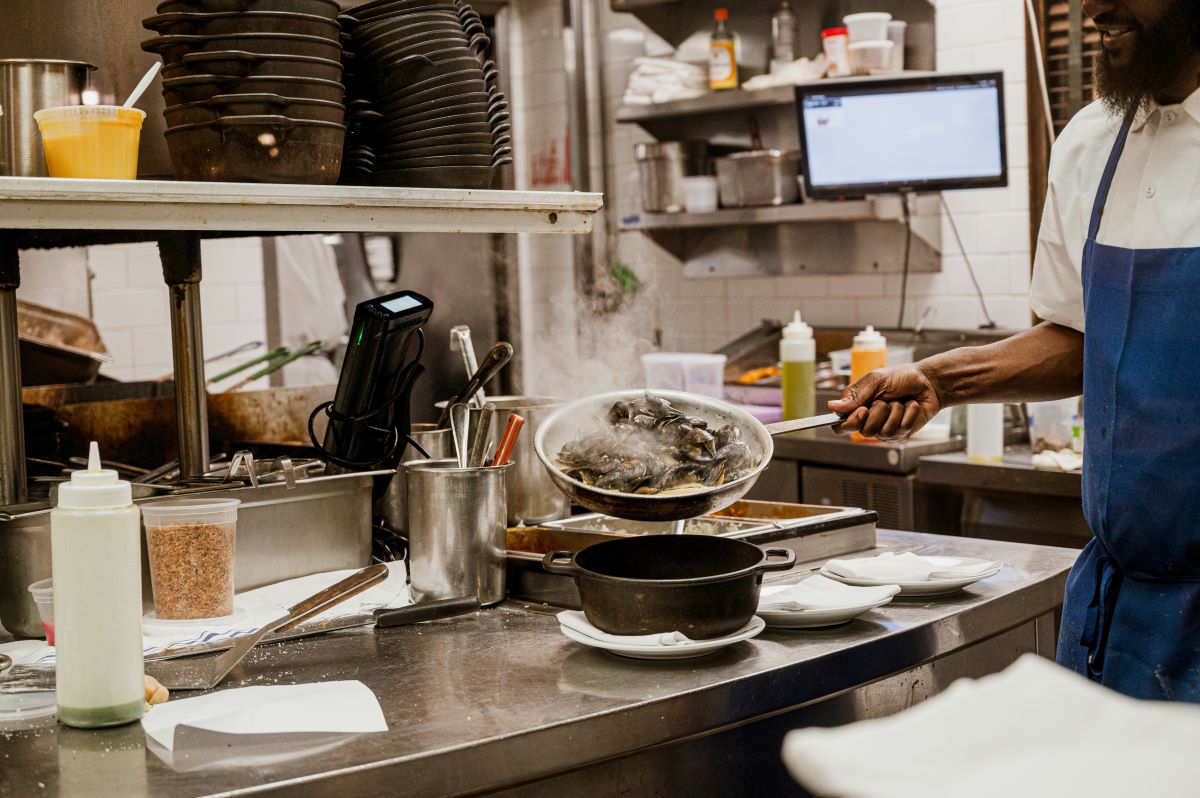
[Flash] Stocking The Bear’s Kitchen with Dynamic Mentoring Conversations
| The latest season of the television show The Bear bursts with mentoring!A conversation between the main character, Chef Carmy Berzatto, and one of his earliest mentors, Chef Andrea Terry, offers the opportunity to delve into the art and skill of mentoring.
Years prior, Andrea had trained Carmy at her prestigious restaurant, Ever, and inspired him with her passion for food, people, and exceptional service. Carmy’s new restaurant, The Bear, reflects her influence. At a celebration at Ever, Andrea and Carmy engage in the following mentoring conversation. His profound respect and reverence for her are palpable. Carmy: Chef, I don’t think I ever got to tell you just how much I learned in this place (Here, Carmy redirected their initial chitchat by acknowledging Andrea’s mentoring.) Andrea: How much did you learn? (Andrea didn’t deflect or run past it. Instead, she gave his appreciation space to expand.) Carmy: It’s a lot. Thank you. Andrea: Well, I learned plenty myself. I learned that I want to sleep in more, go to London more, and go to a party and meet people live. (Here, Andrea candidly shared insights from her own learning journey.) Carmy: That’s why you’re closing Ever? Andrea: Yes, but I got to do all the things I wanted to do the way I wanted to do them with the people I wanted to do them with, so I can’t ask more than that, really. (Andrea’s fresh perspective gave Carmy pause; his reality suddenly altered.) Carmy: huh. Andrea: And now you’re starting. (Here, Andrea shifts the spotlight back to Carmy.) Carmy: It feels like I’ve been starting forever. (Andrea’s sharing gave Carmy permission to meet her vulnerability with his own.) Andrea: But I’ve heard your restaurant is wonderful. Congratulations, Carmy. Truly (Andrea’s sincere compliment recognized Carmy’s commitment and dedication.) Carmy: Thank you, Chef. Can I ask you something? What would you tell yourself when you were where I am? (Here, Carmy noticed his need for guidance rather than compliments. He leaned into this moment to request advice from his mentor without any need to impress her or fear judgment.) Andrea: I don’t think there’s any right thing to say that will make any difference… I think I would have told myself that you have no idea what you’re doing and, therefore, you’re invincible. (At first, Andrea downplayed her wisdom and then rose to the request. She seized the opportunity to validate Carmy’s struggle while offering advice to ease his tortured quest for perfection.) Andrea: Can I ask you something? Next time we see each other, will you please call me Andrea? (She ended with a request to be a human being first and a mentor second.) Carmy: Yes, Chef, thank you. (He agreed but with admiration.) Mentoring is notoriously defined as one person advising another – a simplistic, unrequited transaction. Yet, the skill of mentoring is immensely more dynamic. A meaningful mentoring conversation unfolds like a dance where the partners listen on purpose, shifting their contributions as their exchange blossoms and the needs evolve. Mentoring may start as a transaction, but a heartfelt exploration and learning journey inevitably leads to a transformation. © 2024. Ann Tardy and MentorLead. www.mentorlead.com. All Rights Reserved. |







